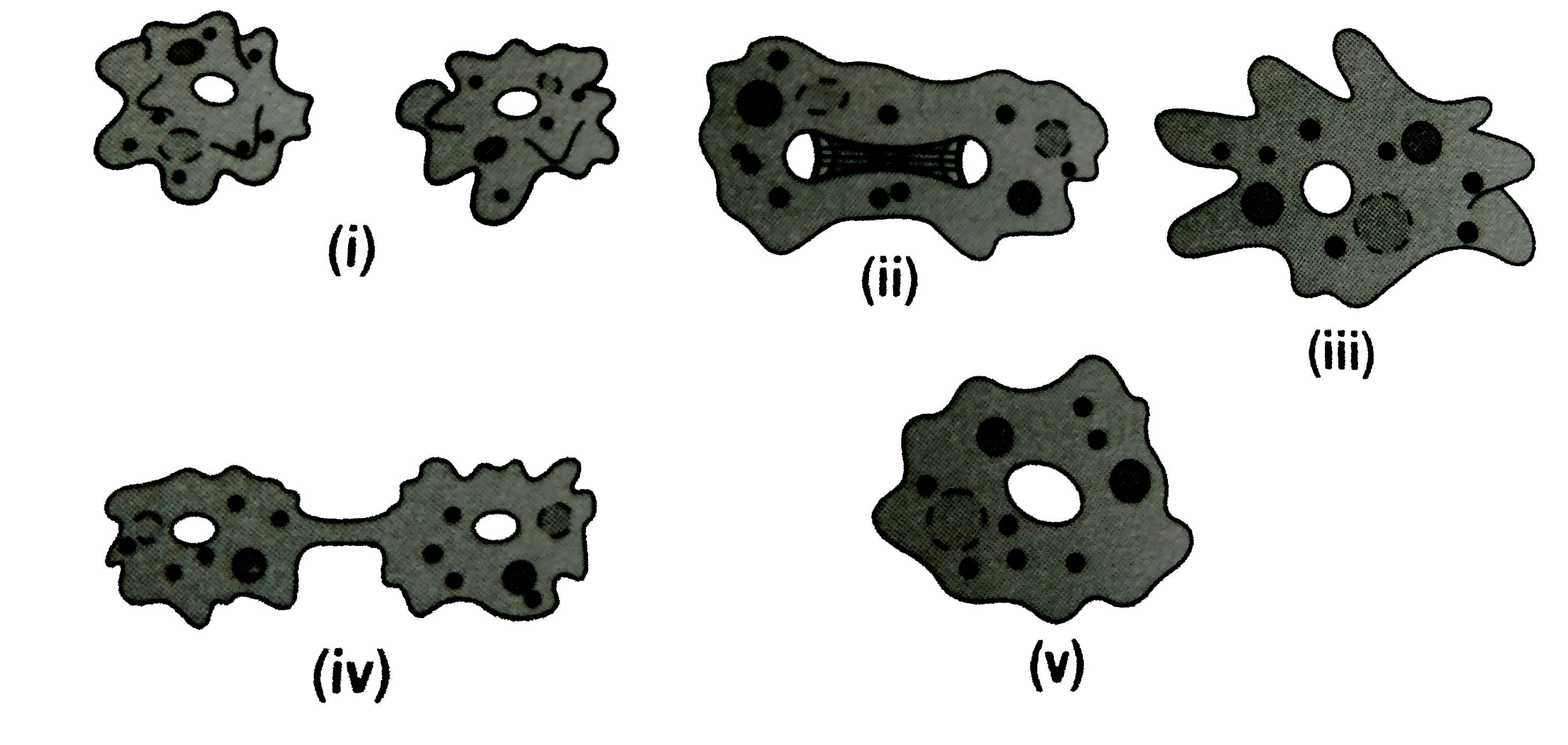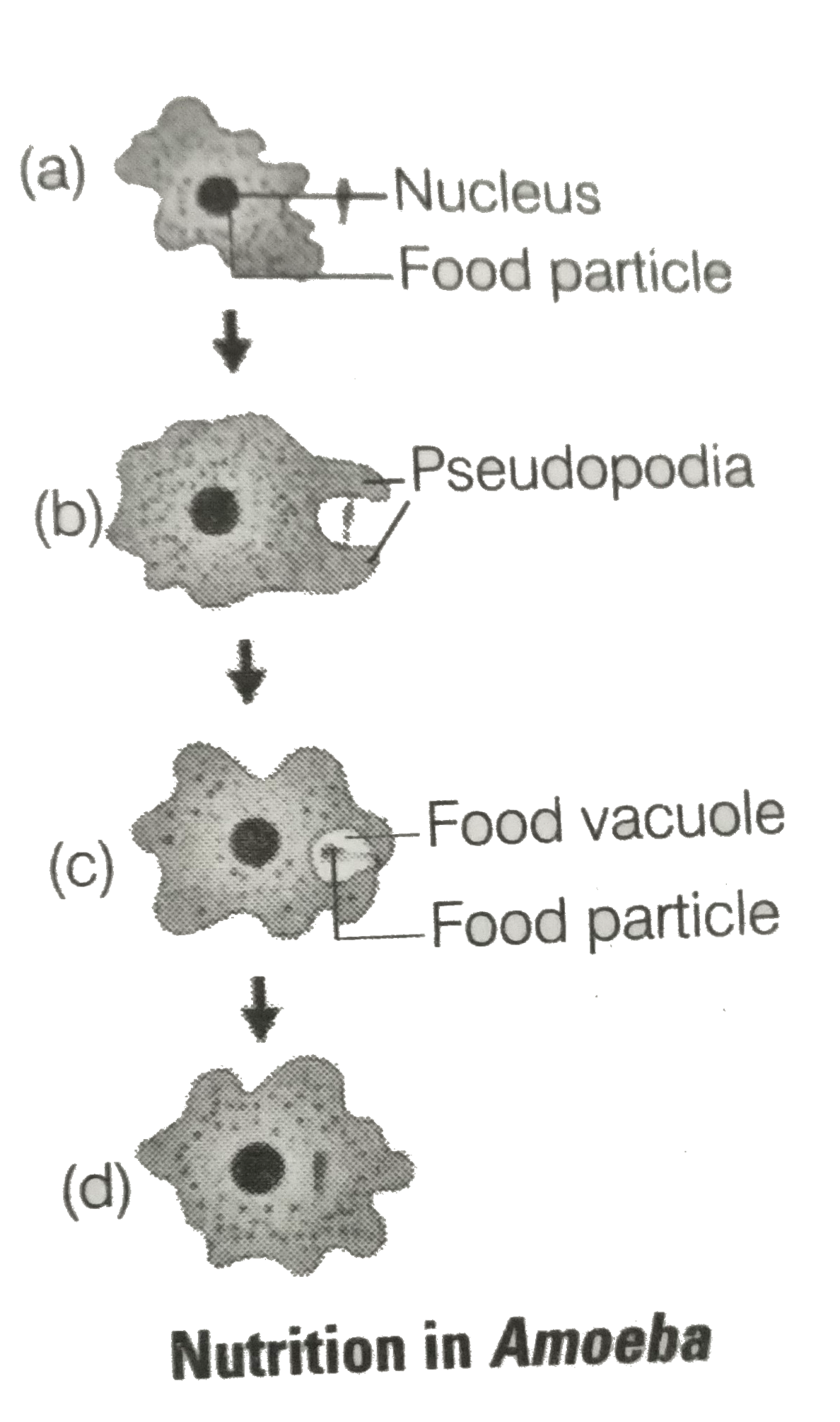Draw in sequence (showing the four stages), the process of binary fission in Amoeba.
Step-by-Step Text Solution for Binary Fission in Amoeba
Stage 1: Parent Amoeba
- Begin with a single parent amoeba. This is the starting point of the binary fission process. The amoeba is a single-celled organism with a defined shape.
Stage 2: Karyokinesis (Nucleus Division)
- The first step in binary fission is the division of the nucleus, known as karyokinesis. The nucleus of the parent amoeba begins to elongate and then splits into two identical nuclei. This ensures that each daughter cell will receive a copy of the genetic material.
Stage 3: Cytokinesis (Cytoplasm Division)
- Following karyokinesis, the cytoplasm of the amoeba begins to divide in a process called cytokinesis. The cell membrane constricts in the middle, and the cytoplasm is divided into two parts, each containing one nucleus.
Stage 4: Formation of Daughter Cells
- Finally, the division is complete, resulting in two separate daughter amoebas. Each daughter cell is a complete organism, capable of independent life. They are genetically identical to the parent amoeba.
Summary of Stages:
1. Parent Amoeba - The original single-celled organism.
2. Karyokinesis - Division of the nucleus into two.
3. Cytokinesis - Division of the cytoplasm to form two cells.
4. Daughter Cells - Two new amoebas formed from the parent.
---
- Begin with a single parent amoeba. This is the starting point of the binary fission process. The amoeba is a single-celled organism with a defined shape.
- The first step in binary fission is the division of the nucleus, known as karyokinesis. The nucleus of the parent amoeba begins to elongate and then splits into two identical nuclei. This ensures that each daughter cell will receive a copy of the genetic material.
- Following karyokinesis, the cytoplasm of the amoeba begins to divide in a process called cytokinesis. The cell membrane constricts in the middle, and the cytoplasm is divided into two parts, each containing one nucleus.
- Finally, the division is complete, resulting in two separate daughter amoebas. Each daughter cell is a complete organism, capable of independent life. They are genetically identical to the parent amoeba.
1. Parent Amoeba - The original single-celled organism.
2. Karyokinesis - Division of the nucleus into two.
3. Cytokinesis - Division of the cytoplasm to form two cells.
4. Daughter Cells - Two new amoebas formed from the parent.
Similar Questions
Knowledge Check
Study the given figures representing the process of binary fission in Amoeba.
Arrange the figures in the correct sequence and select the correct answer.
 A(iv)→(iii)→(i)→(ii)→(v)B(iii)→(iv)→(i)→(ii)→(v)C(v)→(iii)→(ii)→(iv)→(i)D(iv)→(iii)→(ii)→(v)→(i)
A(iv)→(iii)→(i)→(ii)→(v)B(iii)→(iv)→(i)→(ii)→(v)C(v)→(iii)→(ii)→(iv)→(i)D(iv)→(iii)→(ii)→(v)→(i)
Binary fission in Euglena is
View SolutionBinary fission is found in
View SolutionBinary fission is a type of
View SolutionBinary fission is absent in
View SolutionBinary fission is a form of :
View SolutionIn Amoeba the process of digestion is
View SolutionWhich type of binary fission occurs in Euglena?
View Solution

